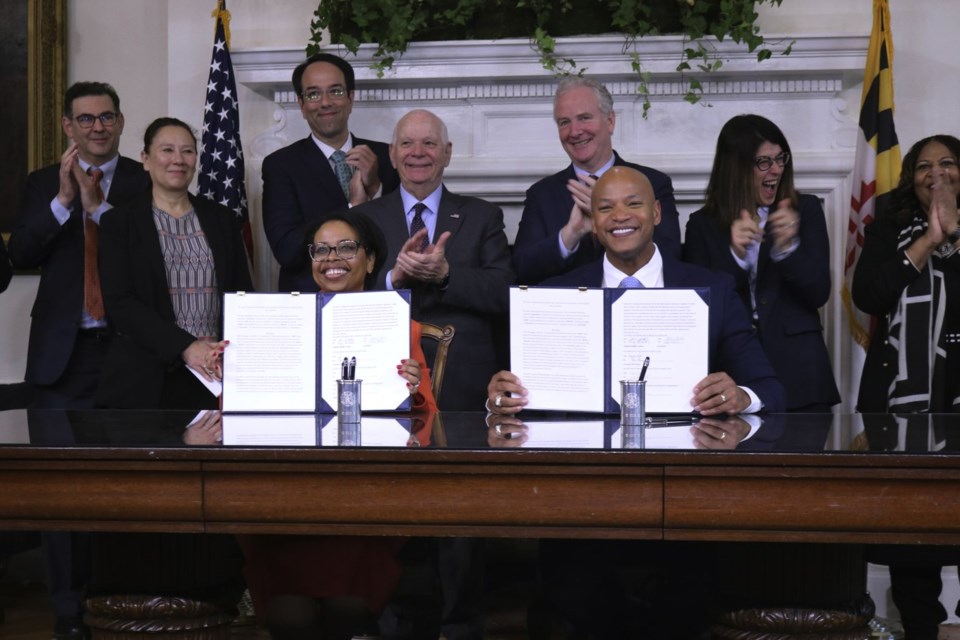ANNAPOLIS, Md. (AP) — Maryland became the first state on Friday to join a federal program designed to improve health care quality and equity while lowering costs for all health care payers, including Medicare, Medicaid and private insurers.
It builds on Maryland’s Total Cost of Care Model, which sets a per capita limit on Medicare’s total cost of care in Maryland and encompasses the state’s unique all-payer hospital payment system, which reduces per capita hospital expenditures and supports improved health outcomes, as encouraged by the Affordable Care Act.
This new federal framework, known as the AHEAD model, has been designed to deliver high-quality health care through greater coordination, with a focus on health equity and social needs to support underserved patients.
“The AHEAD model is the next chapter in health care, so we are proud to be writing that new chapter right here in the state of Maryland,” said Gov. Wes Moore, a Democrat who signed the agreement with U.S. Centers for Medicare and Medicaid Services Administrator Chiquita Brooks-LaSure.
Since the 1970s, Maryland has had a hospital all-payer system that enables the state to set its own rates for hospital services, and all payers must charge the same rate for services at a given hospital.
It’s designed to provide equitable access to care, eliminate the need for charity hospitals and ensure patients are treated the same regardless of insurance status. State law authorizes the system, which bases costs on rates set by hospitals. It has continued to be the foundation of each subsequent evolution of the Maryland health care model.
“Maryland has this unique system that we’ve developed over a period of decades now,” Sen. Chris Van Hollen, a Democrat, told reporters after a news conference in Annapolis. “We’re taking it to the next level by signing this AHEAD agreement, and the bottom line is it helps us accomplish three top priorities: equity, quality, affordability. That’s the goal.”
The Maryland Department of Health will now begin planning to implement the AHEAD model starting Jan. 1, 2025. That will include establishing targets for cost growth, quality and equity improvements, population health, and primary care investments as well as identifying regional partnerships to drive AHEAD goals.
Sen. Ben Cardin said the agreement keeps in place state policy that health care providers receive the same pay for services, so hospitals have incentives to provide equal care, whether you have private insurance, government insurance, or no insurance.
“Secondly, we are now committed to making sure that we have the most effective quality care,” said Cardin, a Democrat. “So, we invest in primary care. We invest in early detection, prevention, so that we can keep you healthier, so you don’t have to spend as much time with health care needs.”
The Centers for Medicare and Medicaid Services has selected five other states — Vermont, Connecticut, Hawaii, Rhode Island, and regions of New York— for participation in the AHEAD Model.
“Maryland’s participation in the AHEAD Model is a critical step forward in improving the overall health of its residents, supporting primary care, transforming health care in communities throughout the state, and addressing disparities in the health care system,” Brooks-LaSure said.
Brian Witte, The Associated Press



